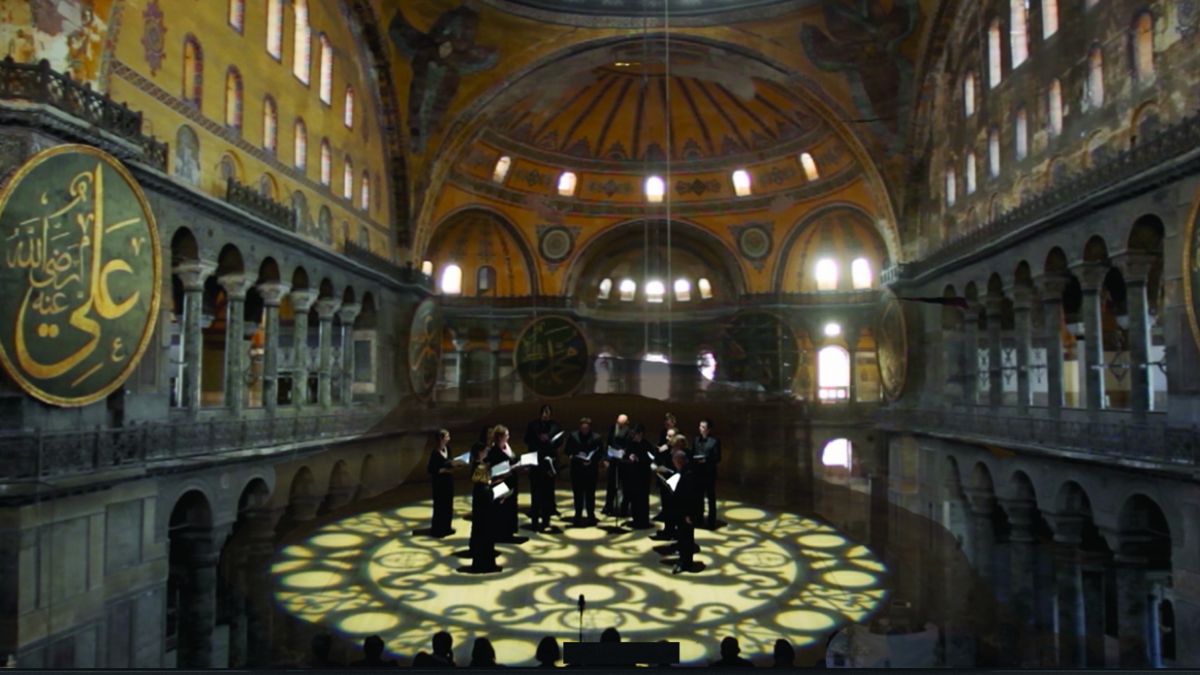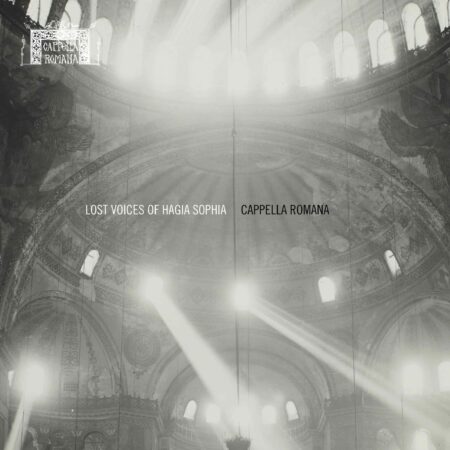This week media outlets across the world thrust Hagia Sophia into the limelight, reporting the action by current authorities to clear the way for the UNESCO World Heritage Site to be changed from a museum to a mosque.
Cappella Romana’s Lost Voices of Hagia Sophia is more relevant than ever: to shine a light on Hagia Sophia’s first nine centuries as a cathedral, before it was made a mosque after Constantinople fell to Ottoman forces in 1453.
Alexander Lingas and I, and all of us at Cappella Romana, are profoundly grateful to you, for buying the recording and sharing it with your friends and family, and for your financial contributions and moral support.
Your belief in us and in the importance of Hagia Sophia is an inspiration. Thank you.
We are also grateful to the Turkish authorities who ten years ago granted access to Stanford’s team to take the acoustic measurements that made this project possible at all. We still hope that kind of openness can continue, to recognize and explore the full cultural, musical, and spiritual history—including that after 1453—of this globally important site.
We are considering future recordings of ancient Byzantine chant—again performed in the virtual acoustics of Hagia Sophia—that would have been sung there for other great feasts such as Christmas and Pascha (Easter), when funding is secured and it is safe to do so in light of the coronavirus pandemic.
Again thank you for your support of Lost Voices of Hagia Sophia and of Cappella Romana.
Mark Powell
Executive Director



